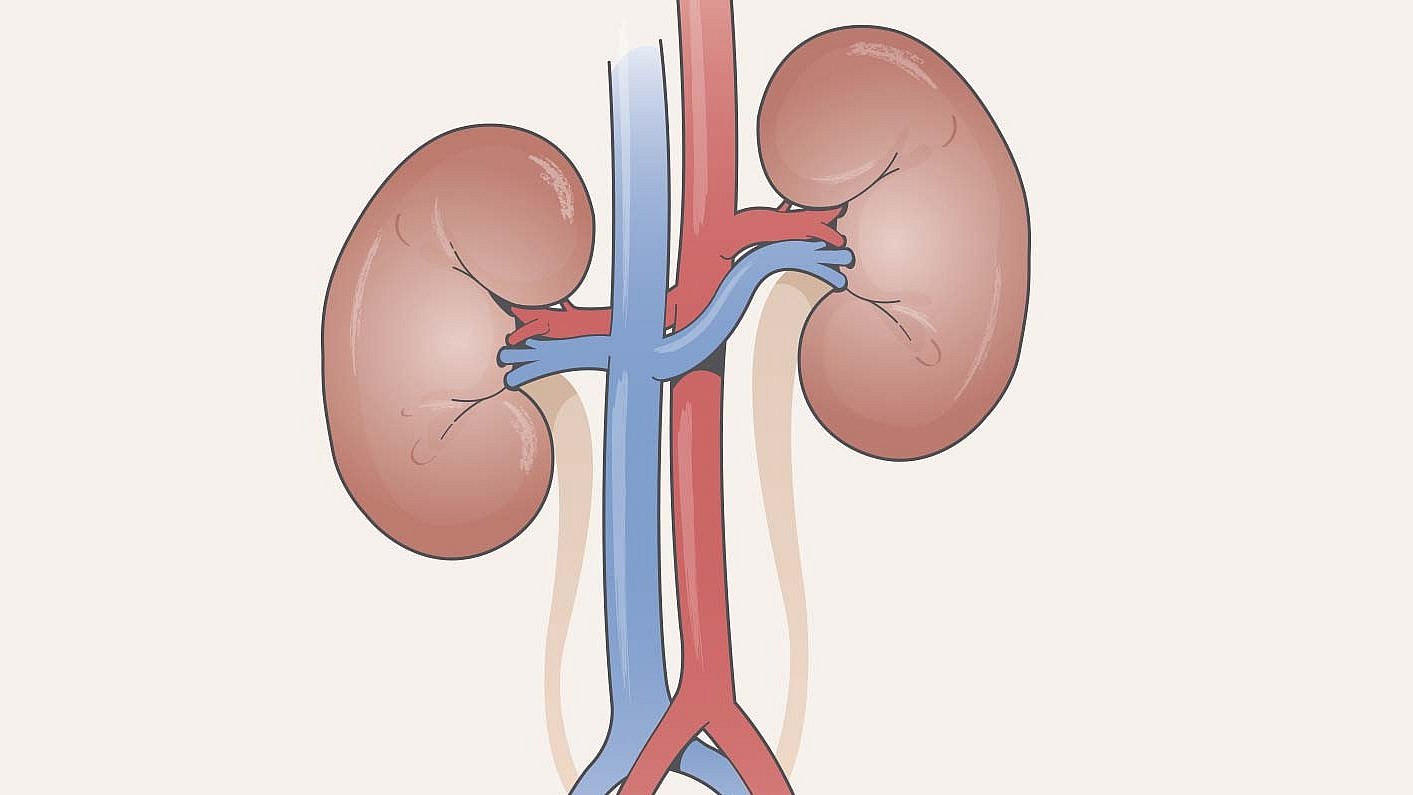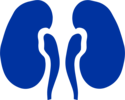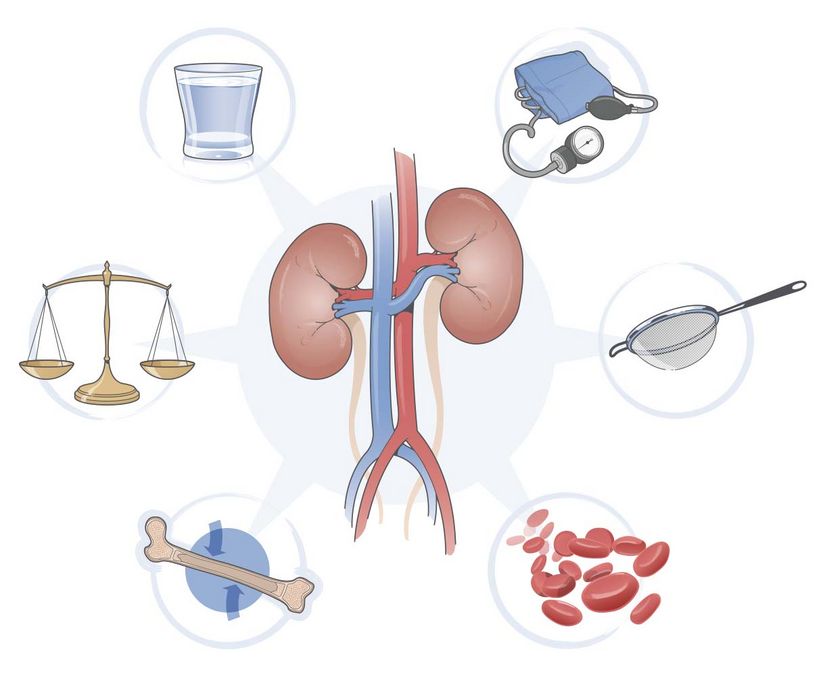How do my kidneys work

Size and location in the body
The kidneys are bean-shaped and the size of your fist. They lie in the middle of the back, on each side of the spine.
Normally, there are two kidneys in our bodies. Among other things, they are responsible for the water balance and the filtering of toxins.
Function of the kidneys
Did you already know?

Your kidneys work 24 hours per day

All of your blood is filtered about 300 times throughout the day if your kidneys are healthy

On average, around 1,500 litres of blood flow through the kidneys a day
Learn about how your kidneys work in the following video:

- The kidneys remove excess water and waste products and put them in urine
- The kidneys influence hormonal balance
- The kidneys affect blood pressure
- The kidneys affect bone stability
Symptoms of kidney disease
You should be aware that the warning signs and symptoms of chronic kidney disease are often difficult to pinpoint. Many patients have chronic kidney disease without knowing it. In general: if you are concerned or have been called for screening, have the tests done.

- Reduced urine production
- Swelling in the hands, face and legs
- Shortness of breath
- Disordered sleep
- Loss of appetite, nausea/vomiting
- High blood pressure
- Feeling cold
- Fatigue, tiredness, sluggishness
- Itching
- Headaches
- Restless legs
Trust your doctor and consult them if you are not feeling well. The sooner you speak to your doctor and the more open you are about your symptoms, the better your doctor can react and find a suitable treatment for you. The right measures at the right time can have a decisive influence on the course of kidney disease. Unfortunately, existing chronic damage to the kidneys cannot be reversed. If complete kidney failure has occurred, the function of the kidney must be replaced. There are various options for this.
Learn how to prevent further kidney damage in the next section
What is an Adverse Event (AE)
Any untoward medical occurrence in a patient or clinical trial subject administered a medicinal product and which does not necessarily have a causal relationship with this treatment [Dir 2001/20/EC Art 2(m)].
An adverse event can therefore be any unfavourable and unintended sign (e.g. an abnormal laboratory finding), symptom, or disease temporarily associated with the use of a medicinal product, whether or not considered related to the medicinal product (Annex 4 Guideline on good pharmacovigilance practices (GVP) Rev 4).
Reporting Side Effects
If you get any side effects, talk to your Doctor, Pharmacist or Nurse. This includes any possible side effects not listed in the package leaflet. You can also report side effects directly via the Yellow Card Scheme at www.mhra.gov.uk/yellowcard.
By reporting side effects, you can help provide more information on the safety of this medicine.
Report an Adverse Event
Adverse events should be reported. Reporting forms and information can be found at www.mhra.gov.uk/yellowcard. Adverse events should also be reported to Fresenius Medical Care on 01623 445 215 and via medinfo-uk@freseniusmedicalcare.com
Medical Information
Call 01623 445 100 (please choose option 5). Opening times are Monday - Friday 9am - 5pm.
UK/HEMA/FME/0922/0002 – Date of Preparation September 2022.

